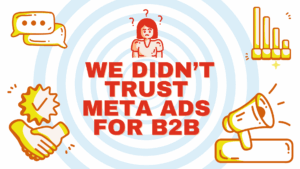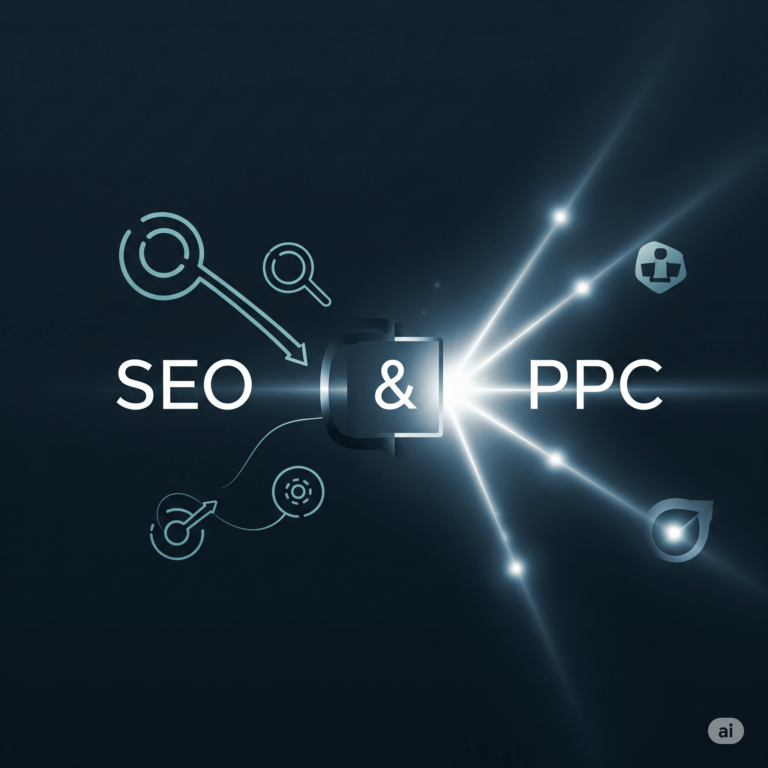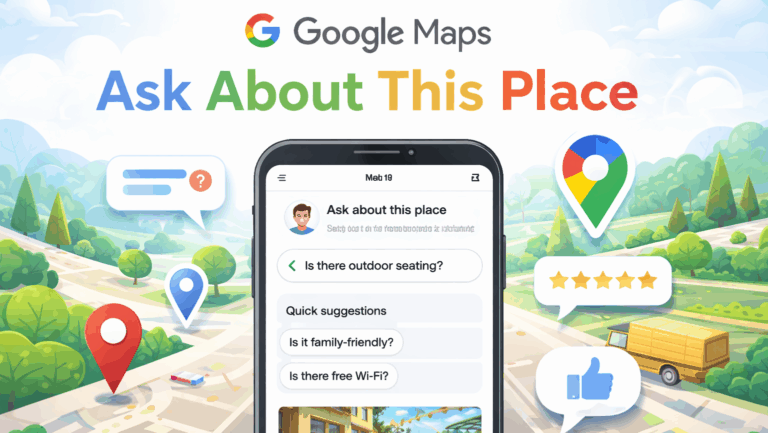Two of the most powerful tools in a robust ecommerce digital marketing toolbox are search engine optimization (SEO) and pay-per-click advertising (PPC). But success isn’t about choosing one over the other – it’s about harnessing both to maximize reach and results. For ecommerce, SEO and PPC aren’t optional, they’re essential. Let’s break down why.
SEO: The Foundation for Long-Term Visibility
SEO helps your site rank organically on search engines like Google, making it easier for potential customers to find you, without having to pay for every click. It’s all about building a strong, lasting presence online. Some key benefits of SEO for ecommerce site include:
- Organic Visibility: SEO helps your products appear in organic search results, which can drive sustainable, cost-effective traffic over time.
Credibility and Trust: Consumers often trust organic results more than paid ads, especially when your site ranks at the top. - Improved UX: SEO prioritizes site speed, mobile-friendliness, and clear navigation, creating a better shopping experience for customers.
- Long-Term ROI: While SEO requires time and effort to implement, it generates ongoing traffic and revenue without direct costs per click.
PPC: The Fast Track to Targeted Traffic
Digital advertising gives you instant visibility by placing your products directly in front of the right audiences across search engines, social platforms, and beyond. Some key benefits of PPC for ecommerce sites include:
- Instant Traffic: No need to wait or build authority over time – PPC brings visitors to your site as soon as your ads go live.
- Precision Targeting: With audience segmentation, paid ads allow you to target specific demographics, behaviors, and interests.
- Remarketing Capabilities: PPC excels at bringing back users who visited your site but didn’t convert.
- Scalability: As your budget grows, online advertising allows you to expand campaigns and maintain high visibility in competitive markets.
Why Ecommerce Sites Need Both SEO and PPC
1. Dominate the Search Results Page
Combining SEO and PPC helps you take over more space on the search engine results page (SERP). When your site shows up in both the paid and organic listings, your chances of getting that click skyrocket—plus, it sends a strong signal of authority to the searcher.
2. PPC Delivers Now, While SEO Builds Over Time
SEO is a long-term investment. While it pays dividends over time, it can take months to see significant results. PPC, on the other hand, delivers immediate traffic, making it ideal for new eCommerce sites or product launches.
Using PPC in the short term while building your SEO strategy ensures your business remains visible and competitive during the ramp-up period.
3. PPC Insights Fuel Smarter SEO
PPC campaigns offer rich data on top-performing keywords, ad copy, and landing pages. You can use these insights to refine your SEO strategy, from on-page optimization to content planning.
- Identify high-converting keywords to target within your content.
- Analyze CTR and conversion rates to tweak SEO titles and meta descriptions.
4. SEO Builds Trust – PPC Extends Your Reach
Great SEO content positions your brand as an expert. PPC helps you amplify that content and connect with audiences who may not have discovered you otherwise. When users see both your ad and organic listing, it reinforces trust and increases your click potential.
5. They Work Together to Capture and Recapture Leads
Most shoppers don’t buy on their first visit. SEO helps bring them in through helpful content or product discovery. PPC, especially with remarketing, brings them back to close the sale.
Crafting an Integrated SEO and PPC Strategy for Ecommerce
SEO Strategy Tips
- Keyword Research: Identify high-intent keywords that align with what shoppers are searching for. Focus on long-tail keywords like “affordable vegan leather handbags” for targeted traffic.
- Product Page Optimization: Optimize titles, meta descriptions, and product descriptions for both users and search engines. Use schema markup for rich snippets.
- Technical SEO: Ensure your site is fast, mobile-friendly, and easy to navigate. Eliminate duplicate content and improve your site structure for better indexing.
- Content Marketing: Develop blog posts, buying guides, and FAQs that address common questions or concerns your audience has.
PPC Strategy Tips
- Google Shopping Ads: Set up optimized product feeds with detailed titles, descriptions, and competitive pricing.
- Remarketing Campaigns: Use dynamic retargeting ads to remind visitors of the specific products they viewed.
- Audience Targeting: Use custom audiences to reach users based on behavior, demographics, or interest.
- Ad Extensions: Enhance visibility with sitelinks, callouts, and price extensions to showcase promotions and key benefits.
- A/B Testing: Continuously test ad copy, visuals, and landing pages to maximize conversion rates.
When PPC and SEO Work Together: A Real-World Scenario
Let’s say someone searches for “best noise-canceling headphones.” They see your PPC ad and click, but decide not to buy just yet. Later, while researching more about how noise-canceling technology works, they find your blog post ranking organically in Google.
Boom. You’ve stayed in front of them at multiple touchpoints—helping them learn, trust, and eventually buy. That’s the magic of a combined SEO and PPC strategy.
Build a Complete Strategy that Wins
Ecommerce sites can absolutely benefit from both SEO and PPC. Both strategies bring unique strengths to the table, but their real power lies in how they work together to drive visibility, traffic, and revenue.
By investing in a cohesive SEO and PPC strategy, your ecommerce business can dominate search results, capture more customers, and stay ahead in an increasingly competitive market.
If you’re ready to take your ecommerce marketing to the next level, contact Arc Intermedia. Our team of experts specializes in creating integrated SEO and PPC strategies that deliver measurable results.












